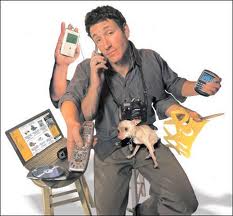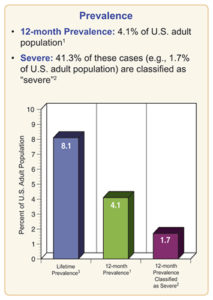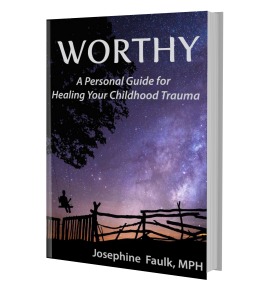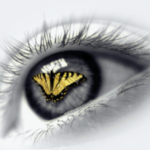The Scary Misdiagnosis of Adult ADHD
 Attention-Deficit Hyperactivity Disorder (ADHD) was not considered a viable adult diagnosis until the 1980s. Oddly enough a large number of adults are currently being diagnosed with ADHD (and medicated) who had no symptoms as children. The supposition being that as children they had coping mechanisms that masked it and now that they are adults those coping mechanisms are no longer sufficient. Where is the logic in that?
Attention-Deficit Hyperactivity Disorder (ADHD) was not considered a viable adult diagnosis until the 1980s. Oddly enough a large number of adults are currently being diagnosed with ADHD (and medicated) who had no symptoms as children. The supposition being that as children they had coping mechanisms that masked it and now that they are adults those coping mechanisms are no longer sufficient. Where is the logic in that?
Consider the following statistics of the graph below from the American Psychiatric Association’s website.
It shows that 4.1% of the adult US population suffers from ADHD. As of 1 January 2013 (United States Census Bureau) the U.S. population was 316, 995,000 (three hundred sixteen million, nine hundred ninety five thousand). Of this population 4.1% are purported to have ADHD, which would be 12,996,795 (twelve million, nine hundred ninety six thousand, seven hundred ninety five). Since methylphenidate is the most prevalent drug prescribed for ADHD/ADD I am going to use that for illustrating my next point.
(Merikangas KR, He J, Burstein M, Swanson SA, Avenevoli S, Cui L, Benjet C, Georgiades K, Swendsen J. Lifetime prevalence of mental disorders in U.S. adolescents: Results from the National Comorbidity Study-Adolescent Supplement (NCS-A). J Am Acad Child Adolesc Psychiatry. 2010 Oct;49(10):980-989).
According to the Mayo Clinic (http://www.mayoclinic.com/health/drug-information/DR601847/DSECTION=proper-use) the normal dosage of methylphenidate for an adult diagnosed with ADHD ranges from 5-20 mg, two to three times a day. Currently the company Janssen Pharmaceuticals, Inc. makes an extended release version of methylphenidate HCI, Concerta LA, that comes in multiple doses, the average being 27mg (there are two higher dosages-36mg, 54mg) taken once a day. Assuming the lowest dosage of 27mg once a day, a month’s supply for an adult would cost an average of $245.00 (I’ve averaged the cost from two major U.S. pharmacies in 2013-Safeway and Walgreens). The generic version averages $175.00 for a 30 day supply.
If we multiply the 4.1% (12,996,795) of Americans diagnosed with ADHD, times the average cost of a month’s (non-generic) supply for a daily dose of the preferred medication for treatment:
$245.00 x 12,996,795 = $3,184,214,775
THREE BILLION, ONE-HUNDRED EIGHTY FOUR MILLION, TWO HUNDRED FOURTEEN THOUSAND, SEVEN HUNDRED SEVENTY FIVE DOLLARS!
That is the average amount paid out per month for ADHD/ADD medication in the United States. And that is only counting the adults.
That goes a long ways toward explaining why so many Americans, children and adults, are receiving the diagnosis of ADHD or ADD. If you have been diagnosed with this, keep reading. You must dig deep and decide if this is truly accurate in your case. Otherwise you may be taking medication which simply masks symptoms of something other than ADHD/ADD, and that were it appropriately addressed, could be overcome permanently, thus permanently improving your quality of life.
ADHD/ADD Diagnosis & Symptoms
According to Children and Adults with Attention-Deficit/Hyperactivity Disorder (CHADD) ADHD is “thought” to be a biological condition, most likely inherited. “Thought to be?” What kind of scientific evidence does that suggest? Additionally there are no biological or chemical types of testing to prove the existence of ADHD or ADD. CHADD goes on to state that there is no cure for ADHD. Why would there be when pharmaceutical companies, collectively, are raking in over three billion dollars a month? And that is only for the adults. It is more than double that for children 13-18 years old, according to the same study that produced the graph in this section, which may be viewed on the APA- DSM website.
Taken directly from the CHADD website is the following list of possible ADHD symptoms. They state there is a range of mild to severe ADHD and that not everyone diagnosed with ADHD has all of the symptoms.
- Poor attention; excessive distractibility
- Physical restlessness or hyperactivity
- Excessive impulsivity; saying or doing things without thinking
- Excessive and chronic procrastination
- Difficulty getting started on tasks
- Difficulty completing tasks
- Frequently losing things
- Poor organization, planning, and time management skills
- Excessive forgetfulness
(http://www.chadd.org/Understanding-ADHD/Adults-with-ADHD/Diagnosis-of-ADHD-in-Adults.aspx#.UnlIAX7Tkf4)
- Symptoms of poor attention/excessive distractibility and physical restlessness or hyperactivity. If, instead of ADHD/ADD, you have Post Childhood-Trauma Disorder the most likely cause for both of these is dissociation. As adults we typically choose one of two methods to dissociate/distance ourselves from painful physical, mental and emotional childhood memories that we have never come to terms with. One way is to approach anything we do in a compulsive manner. This can be school, reading, work, hobbies, housework, our health; any activities that lend themselves to addiction will do as long as they keep us highly distracted. Conversely, anything that bores us just doesn’t do the trick. We can sense the bleeding in of what we so desperately (on a subconscious level) are straining to suppress. This, in turn, leads to physical restlessness, read by others as inattentiveness. We fidget, doodle; visually scan the room and others in the room. What are they doodling? “Oh, they are actually taking notes-never mind. Boring!”
- Symptoms of excessive impulsivity; saying or doing things without thinking. Imagine you are in a meeting and out of the ether you catch a phrase someone just uttered which interests you. You jump right in, so relieved to finally have something stimulating arise. You enthusiastically offer your take on the subject, your experience or opinion. Since you were not paying attention up to that moment you have completely taken the phrase out of context and your answer doesn’t make sense to others in the meeting. Everyone stops and looks at you strangely. Suddenly you get that unwelcome but familiar feeling in your gut that somehow you have, once again, made a social error. You don’t know how to extricate yourself because you don’t know exactly what you did wrong.
This same impulsivity arises when we are triggered. The part of our brain in charge of survival, the limbic brain, cuts in line right in front of your sensible pre-frontal cortex. The result is an emotional outburst which looks like a wee bit of craziness from the outside looking in. What is really going on is the part of your brain that has been working overtime your entire lifetime to protect you is so good at what it does that it refuses to retire and let your now fully grown-up pre-frontal cortex do what it was designed to do. You do not have to take these triggers to the grave. In later chapters I will show you how to tame these well-meaning little troublemakers permanently-without medication.
3. Symptoms dealing with tasks and procrastination, for those with post childhood trauma symptoms, are most likely relevant to the low level of stimulation anticipated by engaging in them.
If you were labeled in childhood with ADHD or ADD, and were in the throes of experiencing such childhood traumas as abuse, abandonment, neglect and exposure to violence and/or other highly inappropriate experiences for a child, it might be time for a little deeper self-examination. There is no definitive test for ADHD/ADD. In the final examination only you can determine if it is an accurate diagnosis for you.
Available at Amazon > Worthy: A Personal Guide for Healing Your Childhood Trauma
Before you go, I want to invite you to join our Worthy Community. By signing up (the form is in the sidebar) you will receive:
* Chapter One of my book WORTHY A Personal Guide for Healing Your Childhood Trauma immediately
* Personal delivery of my entire Monday blog post weekly
****************************
You can find and subscribe to me spreading the love at:
https://www.instagram.com/worthyasweare/
https://www.facebook.com/healingyourchildhoodtrauma/
https://www.pinterest.com/azsunnygrl/worthy-as-we-are/
Copyright ©2018 Josephine Faulk, MPH. Excerpt from WORTHY A Personal Guide For Healing Your Childhood Trauma by Josephine Faulk,MPH. Available, along with accompanying Workbook, on Amazon.






1 Response
[…] You may notice some similarities from the ADHD/ADD descriptions (an earlier post you can find here). Following are my descriptions of what is, in truth, occurring for patients who have Post […]